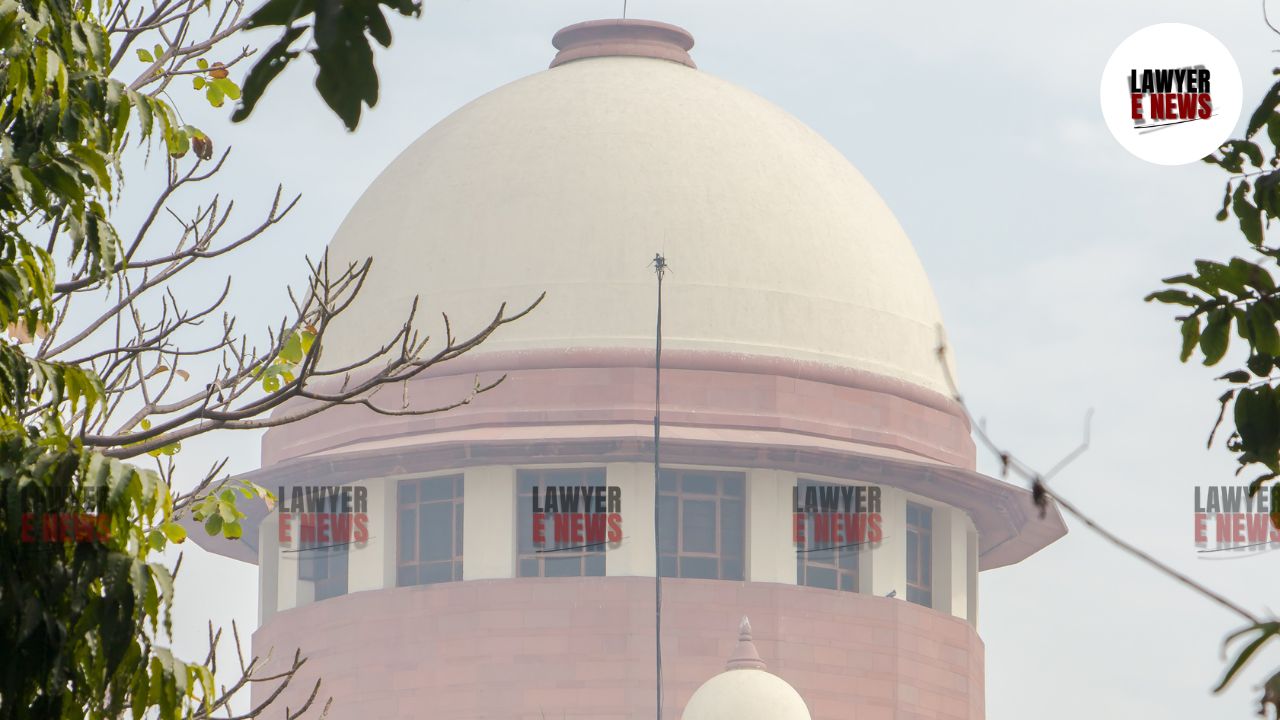-
by Admin
15 February 2026 2:36 AM



Supreme Court of India ruled that the appellants qualified as "Financial Creditors" under the Insolvency and Bankruptcy Code (IBC), 2016, based on their rights under Deeds of Hypothecation (DoH). The judgment, delivered by a bench of Justice Abhay S. Oka and Justice Pankaj Mithal, overturned the National Company Law Appellate Tribunal's (NCLAT) decision and restored the ruling of the National Company Law Tribunal (NCLT), which had upheld the appellants' claims as Financial Creditors.
The Supreme Court clarified that the DoH executed by the Corporate Debtor, Reliance Infratel Limited (RITL), contained a clause creating a contractual guarantee, making the appellants eligible for classification as Financial Creditors under Section 5(8) of the IBC.
The central issue was whether the Corporate Debtor’s obligations under the DoH amounted to a "contract of guarantee" under Section 126 of the Indian Contract Act, 1872, and thus qualified as "financial debt" under Section 5(8) of the IBC.
The appellants argued that clause 5(iii) of the DoH imposed an obligation on the Corporate Debtor to pay any shortfall after the sale of hypothecated assets, effectively guaranteeing the liabilities of other Reliance entities. The NCLAT had rejected this argument, holding that the DoH was a standard hypothecation document and did not create a guarantee.
Disagreeing with the NCLAT, the Supreme Court held: "The latter part of clause 5(iii) of the Deeds of Hypothecation indicates that RITL, though not the borrower, agreed to discharge the liability of the other Reliance entities in the event of default. This constitutes a guarantee under Section 126 of the Contract Act."
The Court emphasized that a contract of guarantee does not require the Corporate Debtor to be the principal borrower. The Corporate Debtor’s promise to pay the shortfall was sufficient to create a financial debt.
The judgment also clarified the definition of "financial debt" under Section 5(8) of the IBC, noting that it includes liabilities arising from guarantees. The Court stated:
"Under Section 5(8), there is no requirement that a financial debt arises only after default. A contingent liability under a guarantee is sufficient to establish a financial debt."
The Court further held that the moratorium under Section 14 of the IBC, which prohibits recovery actions, does not extinguish the creditor’s claims. Even if enforcement of hypothecated assets is barred during the moratorium, the underlying contractual obligations remain valid.
Addressing the NCLAT’s reliance on the title of the DoH as a hypothecation deed, the Supreme Court observed that the substance of the document must take precedence over its nomenclature. Citing precedents, the Court stated:
"The title of a document is not determinative of its nature. The obligations under the DoH must be interpreted holistically, giving effect to its substantive clauses."
The Court rejected the argument that the DoH lacked the necessary elements of a contract of guarantee, noting that the Corporate Debtor had hypothecated its assets and covenanted to pay any shortfall in the recovery of dues from other Reliance entities.
The Supreme Court concluded that the appellants, as secured lenders to Reliance Communications (RCom) and Reliance Telecom (RTL), were entitled to participate in the Committee of Creditors (CoC) as Financial Creditors. The Court reinstated the NCLT's finding that the DoH created a financial debt, entitling the appellants to file claims in the Corporate Insolvency Resolution Process (CIRP) of RITL.
The Court also dismissed arguments that the appellants had waived their rights by voting in favor of the resolution plan. It noted that the NCLAT itself had observed that the plan was subject to the resolution of the appellants’ claims.
Key Takeaways from the Judgment
Guarantees Constitute Financial Debt: A contractual guarantee under a deed of hypothecation qualifies as financial debt under the IBC, even if the Corporate Debtor is not the principal borrower.
Contingent Claims Valid Under IBC: Financial creditors can submit claims in a CIRP even if their claims arise from contingent liabilities, such as guarantees.
Moratorium Does Not Extinguish Claims: The moratorium under Section 14 only prohibits recovery actions; it does not invalidate underlying obligations under contracts.
Substance Over Nomenclature: Courts must interpret contracts holistically, focusing on substantive obligations rather than the title or form of the document.
The Supreme Court allowed the appeals, quashing the NCLAT’s order and reinstating the NCLT’s decision that recognized the appellants as Financial Creditors.
Date of decision : December 20, 2024
